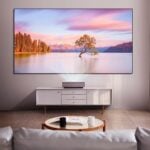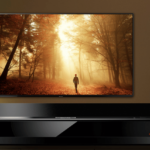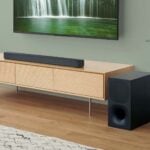Ted Lee
Senior HTF Member
- Joined
- May 8, 2001
- Messages
- 8,390
i posted a thread specific to the bandwidth issue over in a/v sources. feel free to chime in if you'd like.
btw - sorry to threadjack this one.
btw - sorry to threadjack this one.
The result of listening is an acknowledgement that coax sounds better.....to some people.
okay, i just had to sneak that in.
Steve and HeinD:
I think I know what you guys are trying to get at; that in ideal circumstances, optical should beat coaxial in terms of the quality of sound one hears through each system, all other things being equal. We could argue theory all day long; hell, that's what we're doing! But, I prefer to limit my attention to the here-and-now. An upgraded optical system that does not yet exist for A/V gear could sound very good-- it might even write poetry and blow-dry my hair. But we, you and I, are stuck with only four more-or-less universal ways to transmit digital information in digital form from one A/V component to another. The oil drilling and the telephony industries chose their particular methods for... who cares what reason! Their equipment is incompatible! I've never heard Beethoven through an oil rig, and maybe there are other factors influencing my opinion of music-on-hold, but it stinks!
I don't remember who said it first, but all analogies are untrue. This forum is about home theater equipment, and this thread is about coaxial vs. optical. Please weigh-in with your stories and experiences with digital AUDIO.I think thats a pretty ignorant attitude to take to be honest.
I'm sure the designers of high end telecoms equipment couldnt give a toss about some overly-anal music buffs ignorance of the technology behind the systems they employ.
I was hoping by shedding some light on the theory behind the applications folks here could make a more informed decision on which cable to choose.
Maybe the way I put it was a little complex, so heres the simple version just for you:
Cheap & Nasty Optical = BAD
Cheap (quality, not price) co-axial = Better
With coax is alot cheaper and easier to manufacture a good performing cable tho there isnt any 'black magic involved'.
Fiber-Optic requires much more expensive equipment and the glass core is much more fragile.
I guess the 'exotic' deal of using an 'optical cable' is what sells the Toslink.
I hope this time its clear, and I promise, you dont need to buy an oil rig or a telephone exchange to get good sound.
The difference between coax and optical for the sound can only be minimal, because it's digital bits that are transferred, not any analogue signal. And bits are either right or wrong - but they carry error-correction/detection data. You cannot standardly lose "some part" of the data (you can, of course, but it would constitute a communication error). Put it another way: assume you had both connections in operation and a circuit on the receiving end compared the two byte-streams: it would find no differences if the connections were correct.
Same for the "quality" of the cables involved: either they are poor (and many transport errors may occur), or they are "good enough" (meaning: no errors).Try to envisage the thought-experiment I suggested there: both digital streams are compared by a circuit. They deliver the same bytes (they have to, and they certainly can). Now which one would you send to further to the audio-decoders? And what difference would it make?
Optical connections are at the very least as good as wire connections. I'm not going to fight the personal experiences of those who hear a clear difference. I believe you do. Really. But I think it stems from quite something different than the cables we're discussing.
Cees



